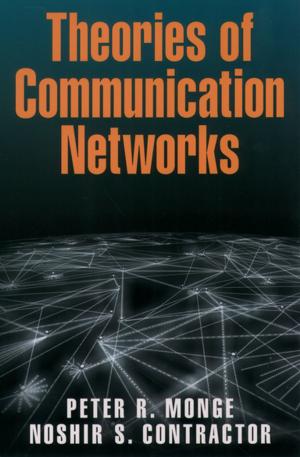eGods
Faith versus Fantasy in Computer Gaming
Nonfiction, Social & Cultural Studies, Social Science, Sociology, Marriage & Family, Entertainment, Games, Role Playing & Fantasy, Religion & Spirituality| Author: | William Sims Bainbridge | ISBN: | 9780199323715 |
| Publisher: | Oxford University Press | Publication: | April 1, 2013 |
| Imprint: | Oxford University Press | Language: | English |
| Author: | William Sims Bainbridge |
| ISBN: | 9780199323715 |
| Publisher: | Oxford University Press |
| Publication: | April 1, 2013 |
| Imprint: | Oxford University Press |
| Language: | English |
What is the relationship between religion and multi-player online roleplaying games? Are such games simply a secular distraction from traditional religious practices, or do they in fact offer a different route to the sacred? In eGods, a leading scholar in the study of virtual gameworlds takes an in-depth look at the fantasy religions of 41 games and arrives at some surprising conclusions. William Sims Bainbridge investigates all aspects of the gameworlds' religious dimensions: the focus on sacred spaces; the prevalence of magic; the fostering of a tribal morality by both religion and rules programmed into the game; the rise of cults and belief systems within the gameworlds (and how this relates to cults in the real world); the predominance of polytheism; and, of course, how gameworld religions depict death. As avatars are multiple and immortal, death is merely a minor setback in most games. Nevertheless, much of the action in some gameworlds centers on the issue of mortality and the problematic nature of resurrection. Examining EverQuest II, Lord of the Rings Online, Rift, World of Warcraft, Star Wars: The Old Republic, and many others, Bainbridge contends that gameworlds offer a new perspective on the human quest, one that combines the arts, simulates many aspects of real life, and provides meaningful narratives about achieving goals by overcoming obstacles. Indeed, Bainbridge suggests that such games take us back to those ancient nights around the fire, when shadows flickered and it was easy to imagine the monsters conjured by the storyteller lurking in the forest. Arguing that gameworlds reintroduce a curvilinear model of early religion, where today as in ancient times faith is inseparable from fantasy, eGods shows how the newest secular technology returns us to the very origins of religion so that we might "arrive where we started and know the place for the first time."
What is the relationship between religion and multi-player online roleplaying games? Are such games simply a secular distraction from traditional religious practices, or do they in fact offer a different route to the sacred? In eGods, a leading scholar in the study of virtual gameworlds takes an in-depth look at the fantasy religions of 41 games and arrives at some surprising conclusions. William Sims Bainbridge investigates all aspects of the gameworlds' religious dimensions: the focus on sacred spaces; the prevalence of magic; the fostering of a tribal morality by both religion and rules programmed into the game; the rise of cults and belief systems within the gameworlds (and how this relates to cults in the real world); the predominance of polytheism; and, of course, how gameworld religions depict death. As avatars are multiple and immortal, death is merely a minor setback in most games. Nevertheless, much of the action in some gameworlds centers on the issue of mortality and the problematic nature of resurrection. Examining EverQuest II, Lord of the Rings Online, Rift, World of Warcraft, Star Wars: The Old Republic, and many others, Bainbridge contends that gameworlds offer a new perspective on the human quest, one that combines the arts, simulates many aspects of real life, and provides meaningful narratives about achieving goals by overcoming obstacles. Indeed, Bainbridge suggests that such games take us back to those ancient nights around the fire, when shadows flickered and it was easy to imagine the monsters conjured by the storyteller lurking in the forest. Arguing that gameworlds reintroduce a curvilinear model of early religion, where today as in ancient times faith is inseparable from fantasy, eGods shows how the newest secular technology returns us to the very origins of religion so that we might "arrive where we started and know the place for the first time."















